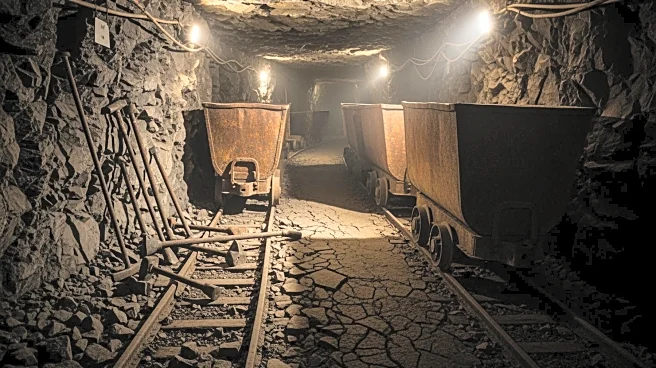What's Happening?
The Nashville Predators are gearing up for the 2025-26 NHL season, starting with their rookie camp on September 10. This camp will be followed by a rookie tournament in Florida, where the Predators will face off against teams like the Panthers, Carolina Hurricanes, and Tampa Bay Lightning. A key storyline is the performance of Brady Martin, the No. 5 overall draft pick, who is expected to be a standout player. Martin's abilities and recent performance at the July development camp have raised expectations for his potential inclusion in the Predators' opening night roster. Additionally, the team is evaluating the pairing of defensemen Tanner Molendyk and Andrew Gibson, which may be reconsidered based on recent camp developments.
Why It's Important?
The rookie camp is crucial for the Predators as they assess new talent and make strategic decisions for the upcoming season. Brady Martin's performance could significantly impact the team's roster decisions, potentially offering a fresh dynamic to their forward lineup. The evaluation of Molendyk and Gibson's pairing is also significant, as it could influence defensive strategies. These developments are vital for the Predators as they aim to strengthen their team and improve their competitive edge in the NHL. Success in these areas could lead to better season performance and fan engagement.
What's Next?
Following the rookie camp, veterans will report for full training camp on September 17. The Predators will continue to monitor Martin's performance, which could lead to his inclusion in the main roster. Decisions regarding Molendyk and Gibson's pairing will be made based on their performance in upcoming games. The team will also assess other rookies like Cole O'Hara, who has shown potential as a playmaking winger. These evaluations will shape the Predators' strategy and roster for the season.
Beyond the Headlines
The Predators' focus on rookie development highlights the importance of nurturing young talent in professional sports. This approach not only builds a strong team foundation but also ensures long-term success and sustainability. The potential separation of Molendyk and Gibson reflects the team's adaptability and willingness to explore new defensive strategies. These decisions could influence the team's culture and dynamics, fostering a competitive and innovative environment.








